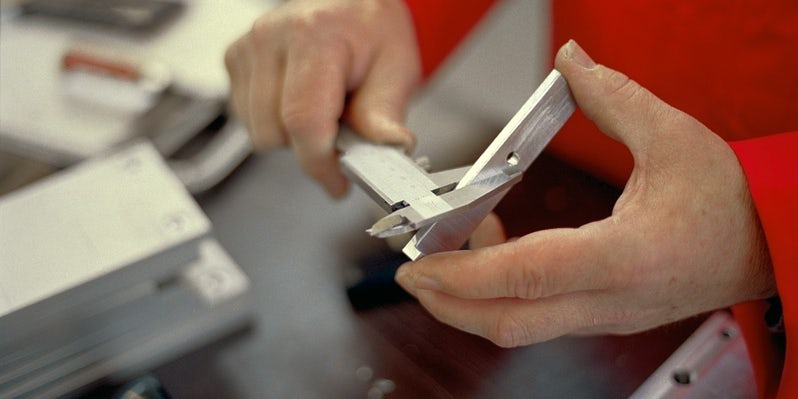
Aluminium Profile Tolerances: What Are They and Why Are They Important?
Aluminium profiles are manufactured with the greatest care. The required tolerance is determined for the profile depending on the envisaged end goal. The profile’s tolerance indicates which size variations are possible in production.
But what exactly do the various tolerance standards mean and what standard is used for which application? And what effect does the chosen tolerance have on the production process of the aluminium profile? Read it in our blog!
Profile tolerances explained
As stated earlier, the profile’s tolerance indicates which size variations are possible in production. If a profile is specified with a tolerance that is too wide, there is a chance that the profile will no longer meet the requested requirements at a later stage of production. It then takes time and effort to make this product suitable for the desired application. These repairs generally don’t much improve the appearance of the profile either.
If too narrow a tolerance is specified for the aluminium profile, this is not good either. This is because the die’s productivity and operating life decreases and the likelihood of rejection during the extrusion process increases. In many cases this leads to an increase in costs, while the product could also have been used with a cheaper, wider tolerance. It is therefore important to find the right balance and to choose a tolerance that is both beneficial in terms of production costs and ensures a usable and robust end product.
Tolerance standards EN 755-9 and EN 12020-2
For aluminium profiles, two European standards are commonly used, set by the standardization organization CEN:
- The standard extrusion norm is EN 755-9. This tolerance standard is aimed at large-scale production of easily manufactured profiles.
- For more precise extrusion applications, the EN 12020-2 standard is used, which is 50% more accurate than EN 755-9. These profiles may be intended for architectural applications or specific uses where minimal shape and dimensional variations are essential.
Note: These standards serve as guidelines. Depending on the profile being produced, even tighter tolerances may be achievable.
Unsure about the required or possible profile tolerance? Feel free to contact us. Comhan offers customised aluminium solutions, and we are happy to work with you to produce the best solution for your needs.

Which tolerance standard for which aluminium applications?
What are profiles with EN 755-9 mainly used for? And in which sectors is the narrower tolerance standard EN 12020-2 often opted for?
In general, profiles with EN 755-9 standards are used in the following sectors:
- Bodywork construction
- Shipbuilding
- Railway vehicle manufacturing
- Tent and scaffold construction
- Offshore
Profiles with an EN 12020-2 standard are often found in the following applications:
- Facade profiles
- Window and door profiles
- Interior construction
- Signing
- Lighting
- Automotive industry
This is purely a general indication: the standards are guidelines and it can be interesting for each specific case to look at the different options. Depending on the size, shape and the complexity of the profile, a narrower tolerance may be achievable.
Standard production or customisation?
Thanks to the clear norms regarding profile tolerances, you as a customer are assured of a good standard. When ordering profiles you know that the maximum deviation is never greater than desirable. This prevents costly changes to the material and allows the profiles to be applied more quickly.
At Comhan, we use the EN 755-9 standard for our standard profiles. The special profiles are produced according to the narrower EN 12020-2 standard. Of course you can always discuss your special tolerance requirements with us so that we can explore possible options for your specific project.